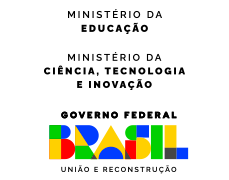Seminários
HOJE
Seminario de alunos (Riemann-Hilbert correspondence)
Resumo: Durante esse semestre teremos um seminário de alunos tentando cobrir a correspondência de Riemann-Hilbert. As palestras acontecerão segundas às 15:00 e quintas às 14:30 na sala 232. Nessa quinta 02/05, Thadeu continuara com o review de D-modulos seguindo o livro de Hotta et. al. "D-modules, perverse sheaves, and representation theory"
Distribuições holomorfas com feixes tangentes totalmente decomponíveis
Resumo: Considere uma folheação holomorfa singular em um espaço projetivo complexo de dimensão maior ou igual a 3, com grau e dimensão da folheação determinados. No contexto da obtenção de algumas componentes irredutíveis dos espaços de tais folheações, é interessante em determinadas situações que uma pequena deformação de uma folheação com feixe tangente totalmente decomponível (split) tenha não somente feixe tangente localmente livre, mas que permaneça sendo totalmente decomponível. Surge então a pergunta: dada uma folheação qualquer com feixe tangente localmente livre, é verdade que também é totalmente decomponível? Recentemente, Daniele Faenzi, Marcos Jardim e Jean Vallès mostraram que, de maneira geral, a resposta à pergunta é negativa. No nosso trabalho, exploramos condições suficientes que garantam a decomponibilidade do feixe tangente quando ele é localmente livre. Mais especificamente, dada uma distribuição singular de dimensão 2 em um espaço projetivo complexo de dimensão maior ou igual a 3, fornecemos condições sobre uma subfolheação por curvas que garantam a existência de uma outra subfolheação por curvas e uma relação de decomponibilidade entre os respectivos feixes tangentes, tanto em caráter local quanto global. Como aplicação dos resultados obtidos, mostramos que se uma folheação de codimensão 1 em um espaço projetivo complexo de dimensão 3 possuir feixe tangente localmente livre e for tangente a um campo vetorial holomorfo não-trivial, então seu feixe tangente é totalmente decomponível. Alguns resultados de divisão de formas diferenciais holomorfas por campos holomorfos tangentes são também exibidos.
A new proof of the Milnor conjecture
Resumo: Floer homology comes in various flavours and has developed into a primary tool in low-dimensional topology. In this talk, I will discuss an equivariant version of Seiberg–Witten–Floer homology for finite group actions on rational homology 3-spheres. This gives rise to a series of numerical invariants, generalizing the Ozsvath–Szabo d-invariant. I will survey basic properties and applications of these invariants, including a new proof of the Milnor conjecture in knot theory.
Invariant norms and quasimorphisms on groups of geometric origin
Resumo: One of the mainstream and modern tools in the study of non abelian groups are quasimorphisms. These are functions from a group to the reals which satisfy homomorphism condition up to a bounded error. Nowadays they are used in many fields of mathematics. For instance, they are related to bounded cohomology, stable commutator length, metrics on diffeomorphism groups, displacement of sets in symplectic topology, dynamics, knot theory, orderability, and the study of mapping class groups and of concordance group of knots. In this talk, I will discuss several constructions of quasimorphisms on several classes of groups and present some applications.
In addition, I will discuss interesting invariant metrics on several classes of groups of geometric origin (including hyperbolic, braid, mapping class groups and transformation groups of smooth manifolds) and their relation to quasimorphisms.
PRÓXIMOS
Differential equations and Strong minimality
Resumo: Firstly, I would like to give an introductory talk about the model theory of differential fields, Kolchin's constrained (or differentially closed) extensions of differential fields, and their reduction modulo p by the author and Leon Sanchez. Later, I will explain the model-theoretic contribution to the study of certain differential equations in characteristic zero, such as the Painlev\'{e} equation studied by Nagloo and Pillay and the order three differential equations satisfied by modular j-function by Freitag and Scanlon. Finally, I want to share my current research interest.
Curvature homogeneous hypersurfaces
Resumo: We provide a classification of all curvature homogeneous hypersurfaces in space forms. Besides the obvious cases and a single example in $H^5$ discovered in the 80's, that we recover, the only case left was completely open: the 3-dimensional one in both $S^4$ and $H^4$. We show that, in each of these two space forms, there is a one parameter family of hypersurfaces without symmetries, and a single algebraic example with a circle of symmetries. Moreover, these are essentially all of them.
This is a joint work with Robert Bryant and Wolfgang Ziller.
Neural Conjugate Flows: Physics-Informed Architectures with Differentiable Flow Structure
Resumo: We present Neural Conjugate Flows, a novel design for physics-informed neural networks with flow structure. We prove that this architecture is an universal approximator for solutions of differential equations and demonstrate how its group and topological lead to computational and theoretical gains when simulating dynamical systems with neural networks.
Data Science and Innovation
Resumo: Data science and innovation have become overloaded terms, leading to some confusion. To be successful, the innovation process involves not only inventions (e.g., new methods) but also context, e.g., user behavior and timing, e.g., market readiness. In this talk, I discuss the impact of data science on innovation, using selected success stories (some of which I was involved in). I also give hints to promote innovation within companies, in particular, using open innovation. Finally, I describe some innovations in the context of the Inria-Brasil partnership.
Category Theory applied to Data Visualization
Resumo: Category Theory (CT) is a branch of mathematics that studies general abstract structures through their relationships, and it is unmatched in its ability to organize and relate abstractions. In recent years, CT has found applications in a wide range of disciplines, such as chemistry, biology, natural language processing, and database theory. We present a novel application by formalizing Data Visualization within Category Theory. This formalization creates a bridge between Mathematics and Data Visualizations. Moreover, it provides a framework to express complex visualizations, which can be implemented computationally by leveraging the well-established connection between CT and Functional Programming.


